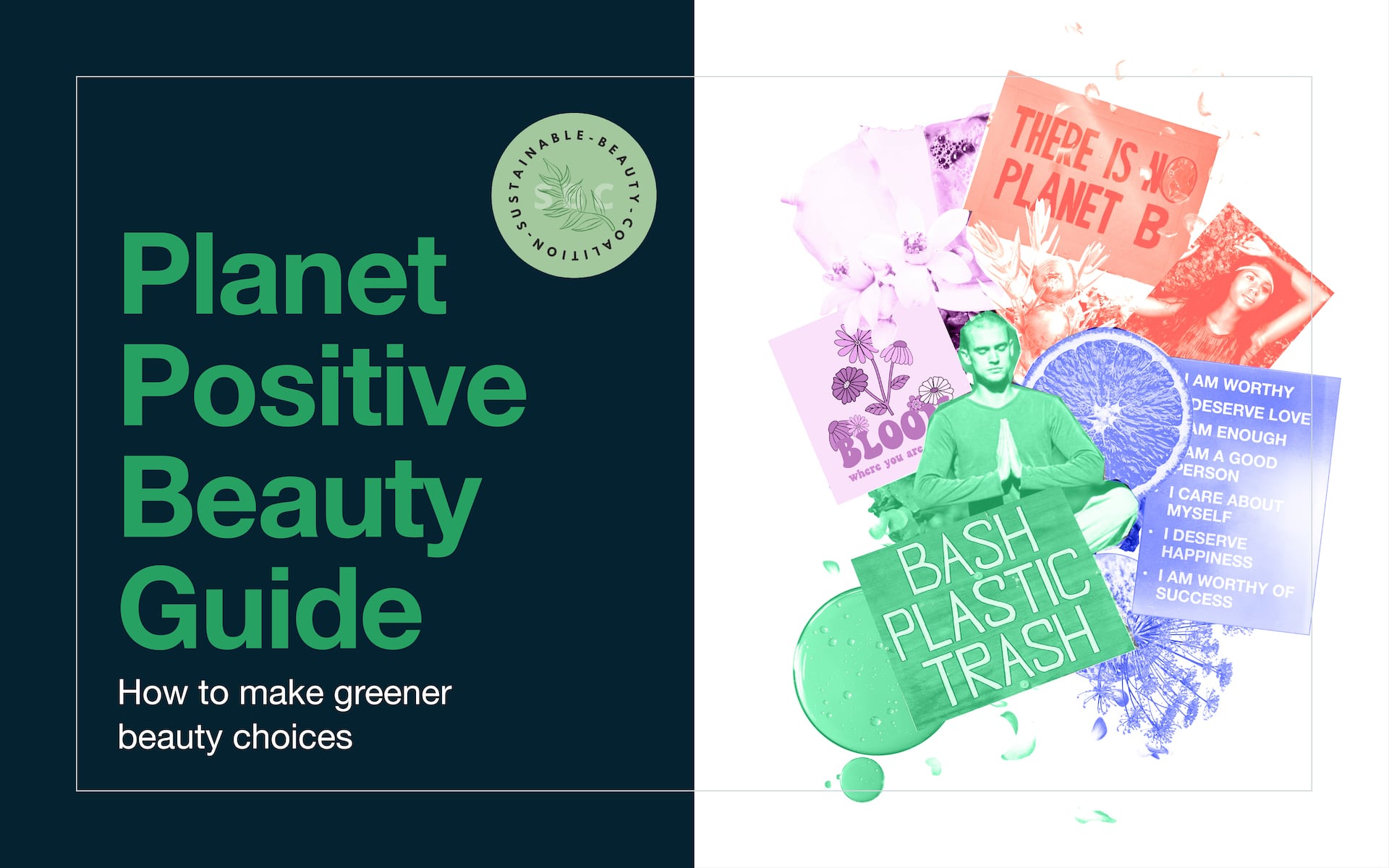Following a new study by Provenance and Cult Beauty showing 48% of consumers want more information and clarity about brands’ environmental commitments, the British Beauty Council’s Sustainable Beauty Coalition has created the Planet Positive Beauty Guide.
Described as a definitive industry guide with easy-to-digest information, it is designed to help consumers navigate through the ‘minefield of baffling ingredient jargon and confusing claims’ and enable them to make greener beauty choices with more confidence.
Drawing on a transparency framework from transparency tech company Provenance, the guide includes a comprehensive list of frequent beauty industry claims and straightforward descriptions to help consumers understand what to look for and what to avoid. It also highlights certifications and third-party verification to check for that signify brands can back up their eco-claims and aren’t greenwashing.
The Planet Positive Beauty Guide is split into four chapters:
- Ingredients – this section breaks down common terms including ‘organic’, ‘vegan’ and ‘cruelty-free’ and highlights certifications
- Packaging: this chapter helps consumers understand key packaging terms such as ‘biodegradable’, ‘recyclable’ and ‘plastic free’ and gives practical tips to help them make better choices
- People – this section highlights terms including ‘fair tax’ and ‘living wage’, to help shoppers support brands and products that treat people fairly
- Sustainable Sourcing – this chapter explores key terms regarding sustainable sourcing, including ‘carbon footprint’, ‘biodiversity’ and ‘net-zero’.
“This phenomenon, called ‘greenwashing’ can be seen not only in the misleading use of claims such as ‘natural’ and/or ‘organic’ but also ‘environmentally friendly’, ‘clean’ or ‘green’,” remarks Jayn Sterland, the coalition’s chair. “Greenwashing not only means shoppers are making what they think are ‘green’ choices which can actively harm the environment, it also drains credibility from honest brands that are genuinely sustainable and environmentally friendly.”
The guide is available now on the British Beauty Council website.





